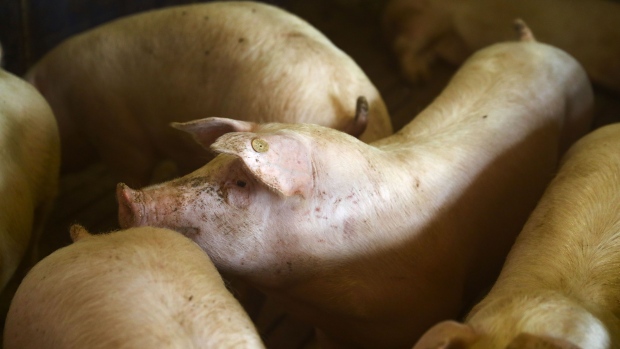Sep 11, 2020
Fears Grow China Will Halt German Pork Imports Due to African Swine Fever
, Bloomberg News

(Bloomberg) -- Nervousness is mounting over whether top pork consumer China will halt imports of the meat from Europe’s biggest producer on concerns about a pig-killing disease.
Germany, which counts on China as a key pork market, confirmed a case of African swine fever on Thursday. That’s already caused South Korea and Japan to suspend purchases, and Taiwan to begin inspecting the luggage of passengers from the European nation.
A Chinese import ban on German suppliers or specific areas where the disease was found is inevitable, said Ma Chuang, deputy secretary general at the Chinese Association of Animal Science and Veterinary Medicine.
The German case was detected in the corpse of a wild boar near the Polish border. A ban by China would deal a further blow to the European country, which has been struggling with the pandemic’s economic impact, and comes just days after the Asian nation said it’ll resume pork imports from some German meatworks that were earlier affected by the coronavirus.
China, the world’s top hog producer, has also been battling swine fever in its own farms since first reporting an outbreak in 2018. That pushed the nation into a supply shortage after the disease slashed herds by about a half, driving up the country’s pork prices and meat imports to record highs.
Germany was China’s third-largest supplier of pork in the first half of this year, after the U.S. and Spain. A reduction in German supplies may benefit producers including the U.S. and Brazil, whose exports to China have been booming, said Lin Guofa, a senior analyst at Bric Agriculture Group.
The German outbreak will lead China to reduce its imports from the country, as was the case for Belgian supplies in a similar case in 2018, Ma said. However, it will have a limited impact on the Asian nation’s breeding stock, as it buys those mostly from France and Denmark, he said.
©2020 Bloomberg L.P.


